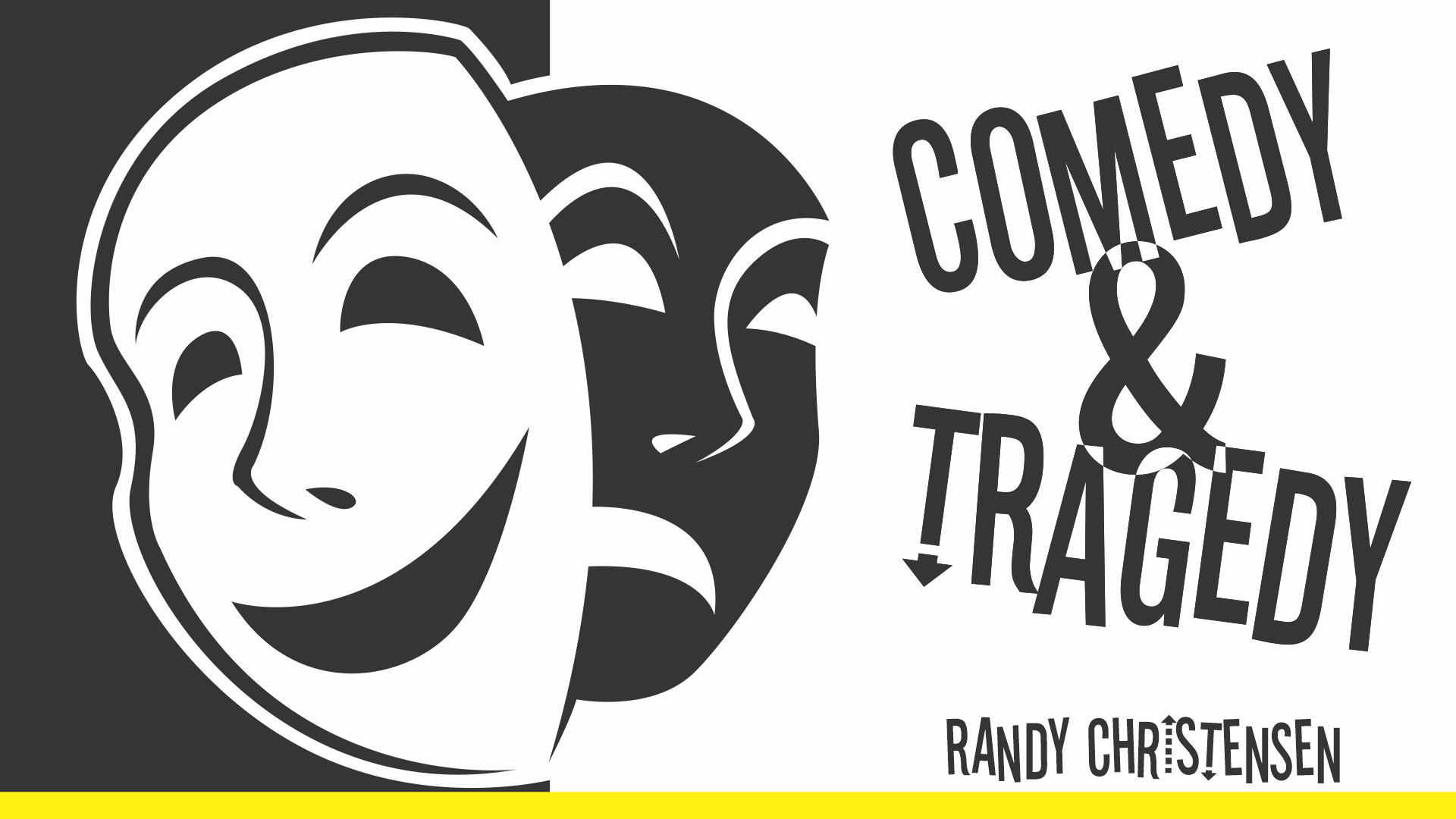
In theater, there are two masks that often represent the two strong venues of theatrical performances – “comedy” and “tragedy.”
In our clown world, the term “comedy” means that something strikes us as funny. Historically speaking, “comedy” was not only about bringing lighthearted laughter. It was a plot sequence.
In our clown presentations we usually have these elements: entrance, introduction of characters, rise of conflict, resolution of conflict (blow-off), and exit.
The resolution of the conflict may leave the characters in a better situation and a better relationship and a happier place. That performance would theatrically be known as a “comedy.”
Ian Johnston from Malaspina University College in British Columbia shares these insights:
The terms comedy and tragedy commonly refer to the ways in which dramatic conflicts are resolved. In comedy, the confusion ends when everyone recognizes what has been going on, learns from it, forgives, forgets, and re-establishes his or her identity in the smoothly functioning social group. Comedies typically end with a group celebration, especially one associated with a betrothal or wedding, often accompanied by music and dancing. …Thus, the comic celebration is looking forward to a more meaningful communal life (hence the common ending for comedies: “And they lived happily ever after”).
The ending of a tragedy is quite different. Here the conflict is resolved only with the death of the main character, who usually discovers just before his death that his attempts to control the conflict and make his way through it have simply compounded his difficulties and that, therefore, to a large extent the dire situation he is in is largely of his own making.
The struggle and conflict and resolution hopefully bring your character (and your audience) to a better place.
At the WCA Convention in San Diego, my son Ben and I performed a Clown Worship Service as part of the lecture schedule. In our program, I performed a routine entitled, “Bubbles Skit.” During this routine, “Micah the Clown” (me) is waiting to catch a bus at a bus stop, but he then begins playing with numerous things – including blowing bubbles – and he ends up missing his bus ride.
Years ago, I used to simply walk out sadly at the end of this routine. But, I then realized that this was a “tragedy.” It left Micah in a sad place, a hopeless place, and my audience was left there with him.
I wanted my audience to have hope for the future and be encouraged. I needed to turn this from a tragic ending. So now, Micah the Clown, finds that his heart is broken. But then, finds a “missing heart piece” inside of a Bible, he prayerfully adds it to his broken heart, and his attitude immediately changes to one of hope and joy. Micah exits, eyes gleaming, with a peaceful smile on his face. I think my church audiences now appreciate being taken into a place of optimism rather than being left in a downcast state.
When it comes to physical comedy, some say, “Tragedy is when it happens to you. Comedy is when it happens to someone else!” The laughter that comes from the television show AFV (America’s Funniest Home Videos) is a case in point. Every time a person trips, falls, flips or gets hit – people laugh! If it happened to you personally, you wouldn’t laugh. But, because it happened to someone else, it was a step away from your own reality. That made it laughable.
As Angel Ocasio says, “Because we are clowns, we stand on a very fine line between comedy and tragedy and it’s through our tragedy that we give our comedy. Trying to open the jar (and not being able to do it) is the tragedy, and the way you try to open it was the audience’s comedy, especially when someone smaller than you can open the jar with ease.”
Life is full of struggle. It’s part of the human condition. Clowns mirror this to their audience in cartoonish ways. By exaggeration and naivete’ the clown takes the reasoning outside of the everyday paradigm of normal life. And how we, as clowns, share these conflicts and resolutions with our audiences may bring tragedy or may bring comedy (a reason to celebrate!)
